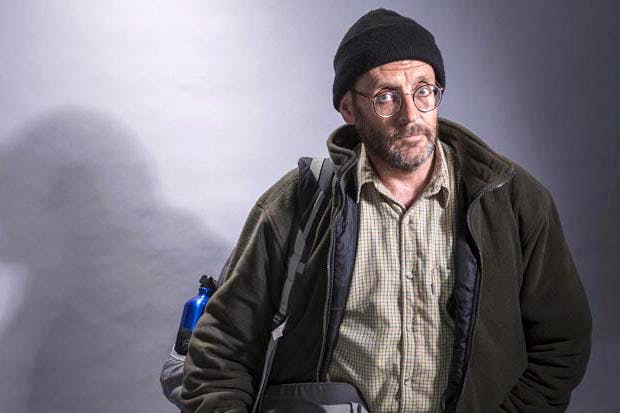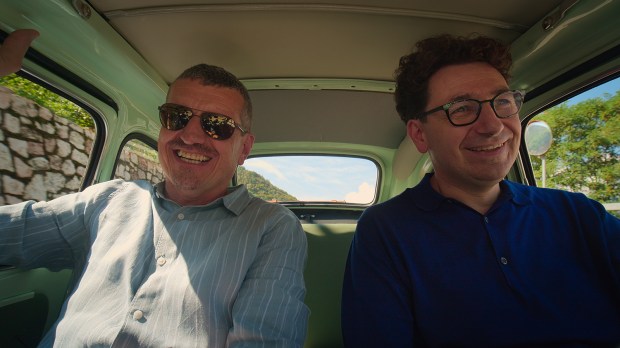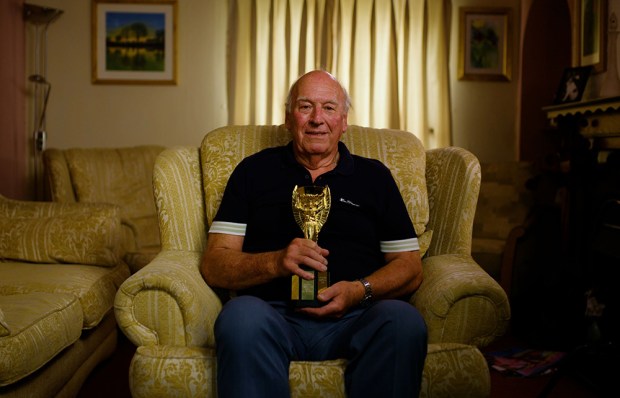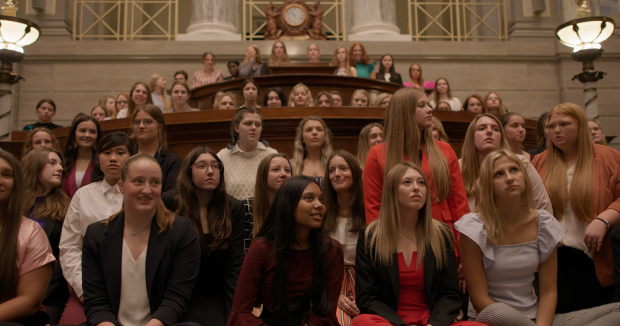Television used to employ entertainers to entertain the public. Back then you could count the channels on the fingers of one hand and still have a thumb left over to stick aloft in praise of the nightly parade of talent. That was decades ago, before every housing estate in the land pointed supplicatory dishes at the cosmos, which beamed back numberless multi-channels devoted to cooking and/or shopping, golfing and/or shagging. It’s all changed. Now television employs the public to entertain the public. It’s cheaper.
So we have talent shows, reality shows, aspirational have-a-go shows from which contestants are expelled one at a time. It is always gripping to find out which members of the public can sing/sell/bake exceedingly good cakes. But as a non-optional extra audiences are also offered the back story, an endless river of soap, snot and sobs in which participants attest that they’re doing this for an auntie with Bell’s palsy, or in memory of a much-admired guinea pig that just pegged it.
This is why Hunted (Channel 4, Thursdays) has blown in like a fresh breeze. Across six episodes, 14 volunteers went on the run, the majority in pairs, and tried to avoid capture for 28 days. Ranged against them was the full apparatus of the surveillance state in the shape of former coppers and soldiers and other specialists in man-hunting, some monitoring events and pulling strings from a central office, others giving chase up and down Britain’s roads. The Achilles’ heel for the hunted was the magnetic tug of partners and children. To remain truly undetected, there could be no phoning family or friends, no here-I-am status updates and look-at-me tweets. For once the back story — the life they’d left behind to appear on TV — has had genuine narrative value.
As was remorselessly demonstrated each episode, the state can barge into your home, nab your computer and your phone, hack into your (possibly embarrassing) search history, scour your social network, keep tabs on all your contacts, track your number plate and theirs around every A-road in the country. Plus, if necessary, freeze your bank account. The minute anyone comes up for air, they give away a coordinate and the state starts looking for them on its globally unrivalled collection of CCTV cameras.
Those in the pro-Snowden lobby object to the idea that you’ve got nowt to worry about if you’ve got nowt to hide. Whether right or wrong, this was an adrenalised infomercial about the long arm of the security services. The relevant agencies doubtless granted the programme access to its CCTV, ATM and ANPR technology because it wants everyone to know how hard it is working to keep us safe. For the same reason they green-lit the participation of 30 freelance operatives, a capable bunch of geeks and goons who, the second they slipped on a pair of Ray-Bans, looked like prats.
There were flaws in the design of the experiment, all to do with the conflict between making good television and making truthful television. To cite an entry-level anomaly, going to ground becomes marginally more taxing with a cameraperson dogging your every step. (Exit, pursued by a crew.) And this is just a hunch, but up-for-it adventurers who volunteer for TV exposure may be more inclined to seek attention than, to take a random example, suicide bombers. The latter may also be less able to rely on the kindness of strangers offering lifts and beds to evade capture.
Trainee extremists of every stripe will have studied this how-not-to manual and taken notes. The most instructive stories did not involve the majority, almost all from the south-east, who headed for the hills to stick out like sore thumbs. The Singh brothers from Leicester — who, let’s face it, are from the demographic most likely to interest the state — disappeared into urban Asian communities and were doing nicely until they decided to come up for air. A fiver says this was at the behest of the producers. The reality is that anyone who truly wished to evade capture by hiding in a tent or a darkened room or London ran the risk of serving up Mogadon TV.
By the last episode four resourceful fun-seekers were still on the run for a pulsating if artificial Argo-style climax. Two of them were old pals Emily Dredge and Lauren English, who set off together but had soon pissed off not only the audience but each other. When they split up, again you couldn’t rule out the sulphurous influence of the producers tempting them to be lone stars. Other fugitives had lasted nearly as long but their stories were dispatched more quickly. Emily and Lauren survived because they were gruellingly paranoid. But they were also good value because they knew how to behave in a reality television experiment. It can only be because they’ve watched too many programmes in which members of the public try to hang on till next week.
Got something to add? Join the discussion and comment below.
Get 10 issues for just $10
Subscribe to The Spectator Australia today for the next 10 magazine issues, plus full online access, for just $10.














Comments
Don't miss out
Join the conversation with other Spectator Australia readers. Subscribe to leave a comment.
SUBSCRIBEAlready a subscriber? Log in